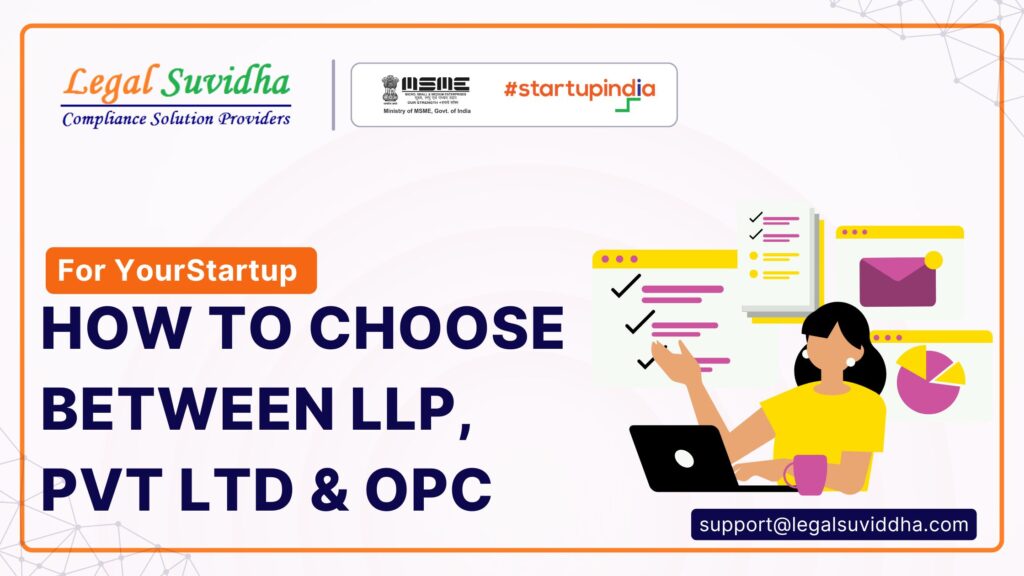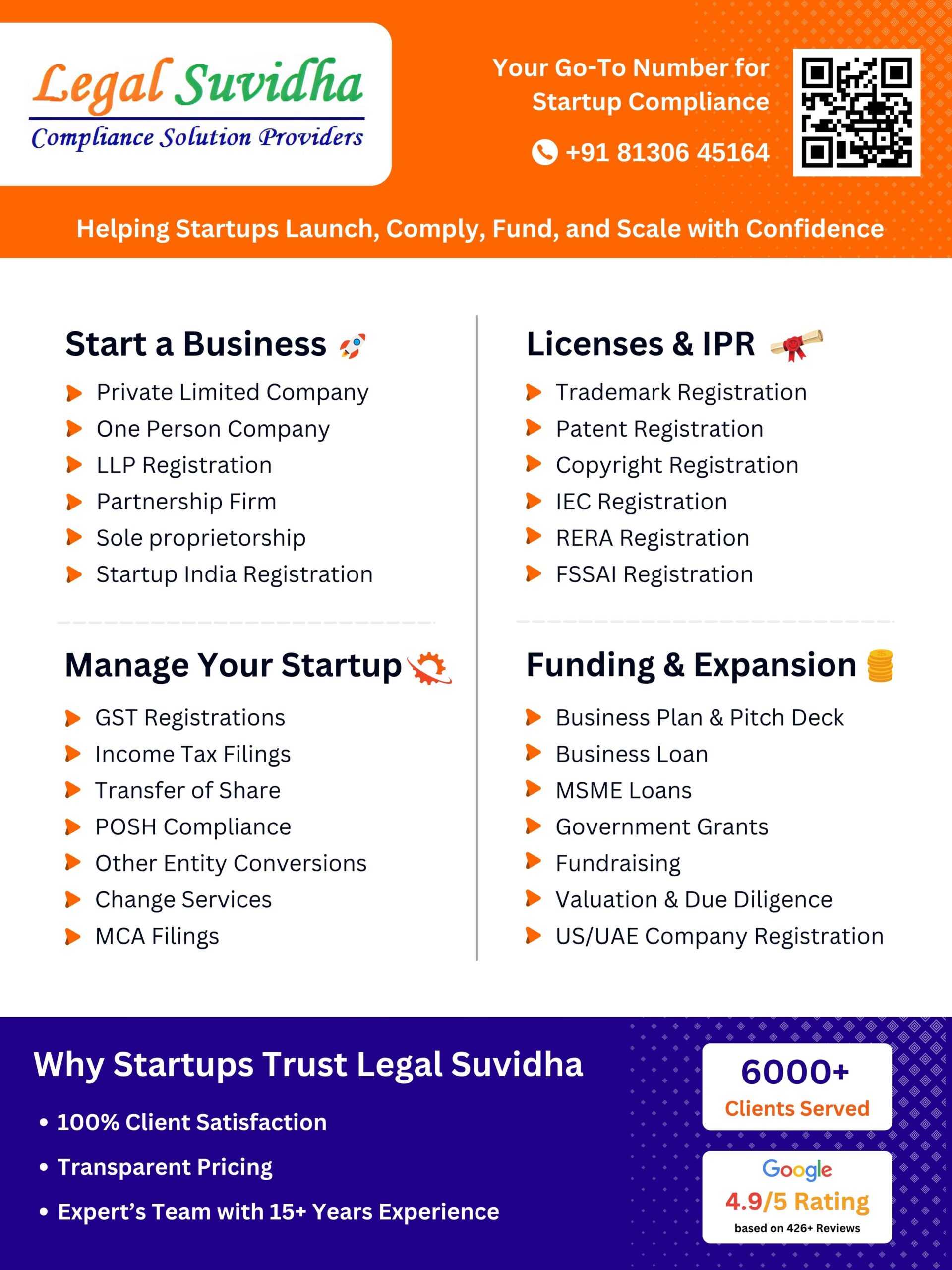How to Choose Between LLP, Pvt Ltd & OPC for Your Startup
Why Your Startup’s Legal Structure Matters More Than You Think
When you think of launching your startup, your brain is wired to think product, not paperwork.
But choosing between LLP, Pvt Ltd & OPC is not just a formality—it’s your startup’s legal foundation. A shaky one could block funding, attract penalties, or even limit your growth potential.
Your legal structure directly impacts:
- Ownership
- Taxation
- Funding eligibility
- Compliance requirements
Choose wisely or prepare to pivot painfully later.
How a common mistake delayed funding and hurt a promising founder’s growth.
Rachit was a brilliant coder. He built a fintech app and registered it as an OPC because he was the only founder. Fast, simple, and affordable. What could go wrong?
Six months later, his app gained 20,000 users and caught an investor’s eye.
The investor asked,
Can you send your cap table and shareholding details?
Rachit hesitated.
He didn’t have any shares to offer. He was an OPC, which legally can’t have more than one shareholder.
The investor passed.
All because of one early decision.
He later had to convert to a Private Limited Company, which cost him ₹35,000 and delayed him by 2 months.
The funding window? Gone.
The Hidden Consequences of Choosing the Wrong Structure
Here’s what most startup founders don’t realize:
- LLP can’t issue equity—no angel or VC will touch you.
- OPC restricts shareholder count—you can’t onboard a co-founder later.
- Pvt Ltd comes with higher compliance—but it’s necessary if you want to scale or raise funds.
Choosing wrongly can:
- Delay funding
- Limit partnerships
- Create tax burdens
- Force expensive conversions later
The Legal Implications of LLP, Pvt Ltd, and OPC
LLP (Limited Liability Partnership)
- Ideal for: Service-based businesses, professional firms
- Pros: Flexible, low cost, less compliance
- Cons: Can’t issue shares, not investor-friendly
Pvt Ltd (Private Limited Company)
- Ideal for: Scalable startups, those seeking investment
- Pros: Acceptable for VCs and banks, easier ownership transfer
- Cons: Requires more paperwork and ongoing compliance
- Ideal for: Solo entrepreneurs not seeking funding
- Pros: Limited liability, corporate identity
- Cons: Restricted to one shareholder, limits growth
-
The Smart Founder’s Decision-Making Framework
Use this table to decide what’s right for your startup:
| Goal / Need | Best Structure |
| Solo founder, no funding plan | OPC |
| Two partners, no investment | LLP |
| Want funding, scalable model | Pvt Ltd |
| Freelancer or consultant | LLP |
| Will onboard co-founders/investors | Pvt Ltd |
Still confused? Don’t worry—Legal Suvidha will help you make the right choice based on your startup’s specific situation.
don’t wait to fix what you can get right from Day 1.
Legal Suvidha’s All-in-One Solution for Startup Setup
Here’s how Legal Suvidha becomes your startup’s legal co-founder:
✅ Free consultation to choose between LLP, Pvt Ltd & OPC
✅ Complete registration within 3–5 working days
✅ PAN, TAN, GST, bank account setup
✅ Assistance in Startup India registration
✅ Ongoing ROC, GST, and tax compliance
✅ Conversion from LLP/OPC to Pvt Ltd if needed
It’s not just registration. It’s long-term startup strategy.
Make or Break Moment: Which Option Will You Choose?
You’re at a decision point.
You have two choices right now:
Option 1: Do nothing.
Choose a structure blindly. Hope it works. Face legal, tax, and funding hurdles later.
Option 2: Contact Legal Suvidha
get expert help to structure your startup the smart way.
Startup mistakes can be costly. Let’s avoid them now.
Connect with our Domain Expert or reach out via WhatsApp for instant help
Phone: 8130645164
📧 Email: [email protected]
🌐 Website: www.legalsuvidha.com
Explore More Startup Resources from Legal Suvidha
- 👉 Startup Compliance Checklist for 2025
- 👉 How to Register a Private Limited Company in India
- 👉 Annual ROC Filing Calendar Explained







